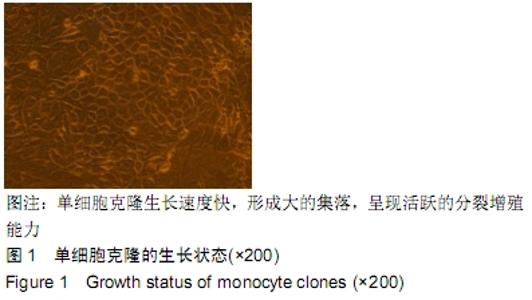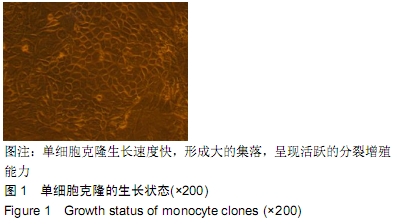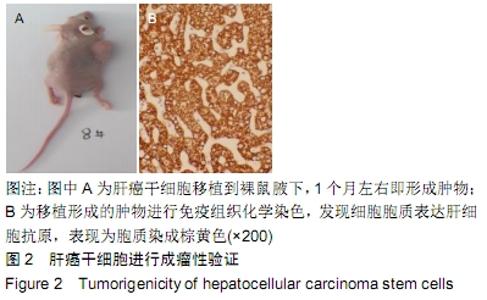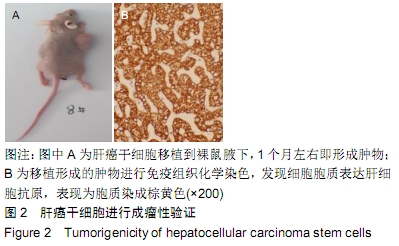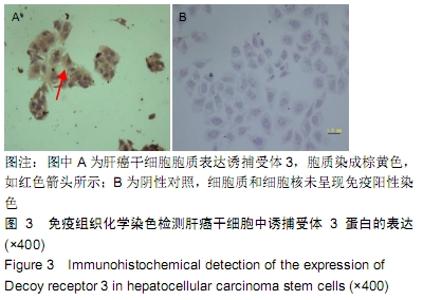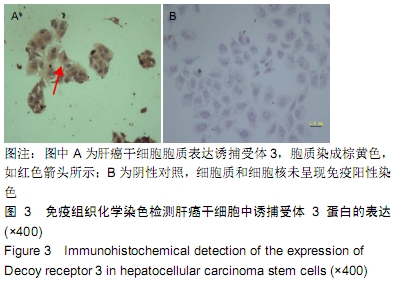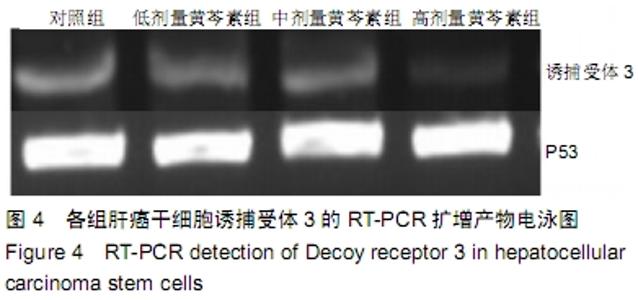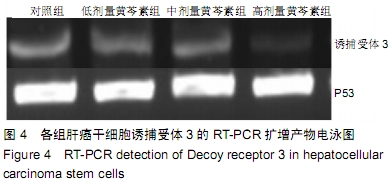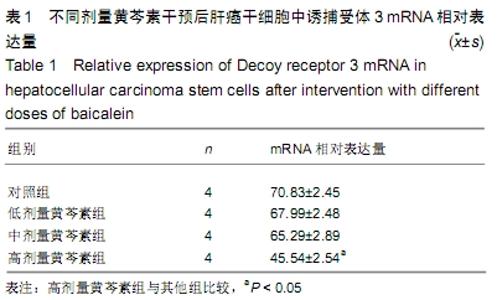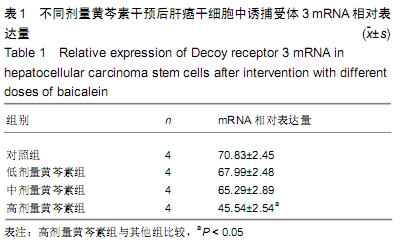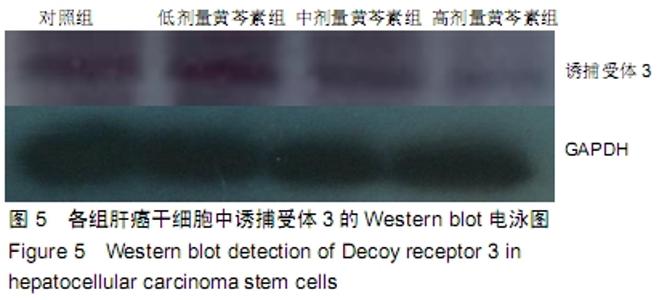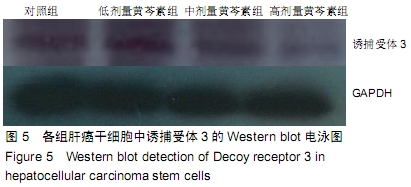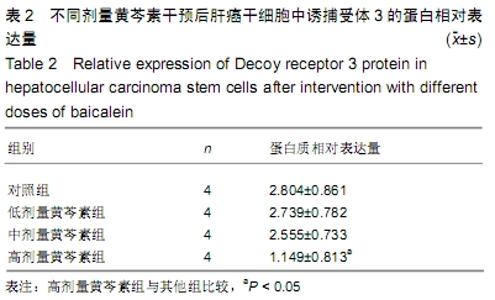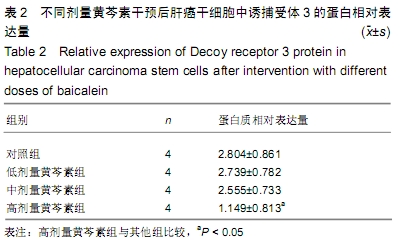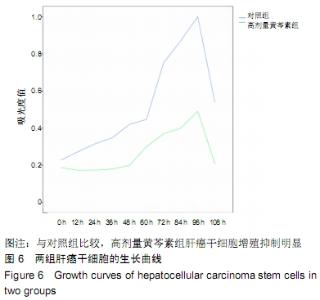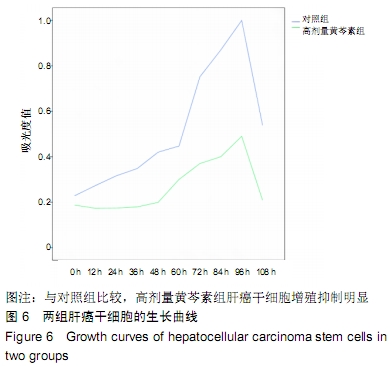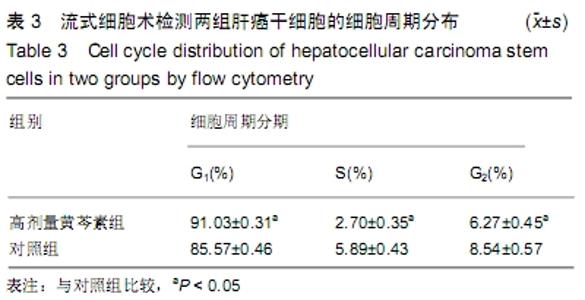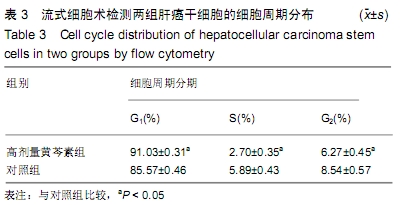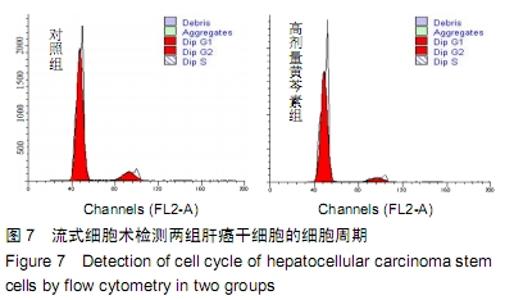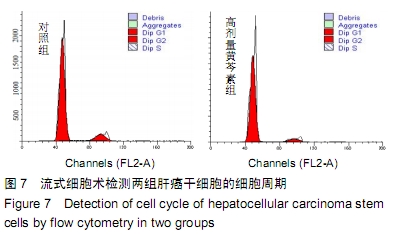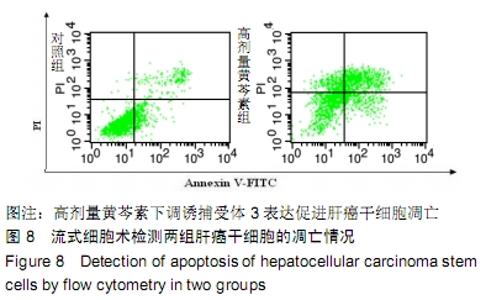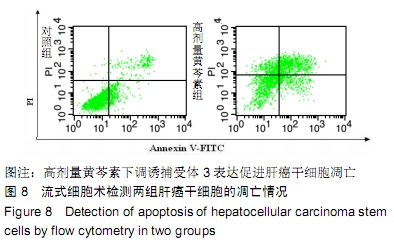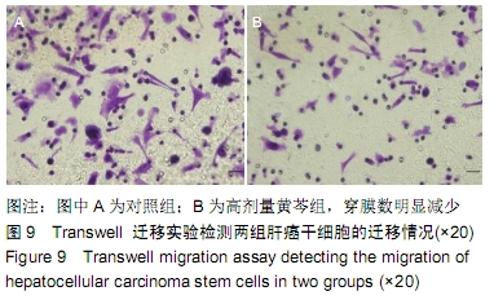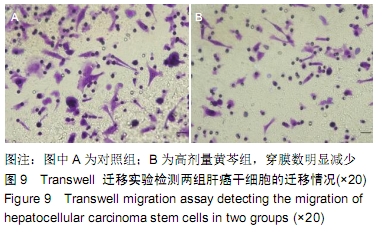[1] LLOVET JM, BURROUGHS A, BRUIX J. Hepatocellular carcinoma. Lancet. 2003;362(9399):1907-1917.
[2] CHIBA T, KITA K, ZHENG YW, et al. Side population purified from hepatocellular carcinoma cells harbors cancer stem cell-like properties. Hepatology. 2006;44(1):240-251.
[3] MA S, CHAN KW, HU L, et al. Identification and characterization of tumorigenic liver cancer stem/progenitor cells. Gastroenterology. 2007;132(7):2542-2556.
[4] YIN S, LI J, HU C, et al. CD133 positive hepatocellular carcinoma cells possess high capacity for tumorigenicity. Int J Cancer. 2007;120(7):1444-1450.
[5] 钟育健,陈新美,李秋芬.汉黄芩素体外抗肝癌细胞HepG2作用的实验研究[J].中国药学杂志,2013,48(12):968-971.
[6] 敖鹏,陈晋,边晓燕,等.黄芩素对人胰腺癌细胞增殖与凋亡的影响[J].中国药师,2018,21(7):1154-1158.
[7] 曹慧娟,李君,孙淑军,等.黄芩素对人肺腺癌A549细胞的药效作用及机制探讨[J].中国实验方剂学杂志,2017,23(2):98-103.
[8] 孙沛林,朴日龙,王莹,等.黄芩素抑制胃癌MGC_803细胞增殖和迁移[J].中国病理生理杂志,2018,34(3):417-422.
[9] 樊帅君,陈志成,周菊明.汉黄芩素对结肠癌LoVo细胞增殖、凋亡和周期及G1/S关卡调控因子的影响[J].时珍国医国药, 2017, 28(3):555-557.
[10] 闫婉君,马兴聪,高晓燕.黄芩素与乳腺癌侵袭转移关系的研究新进展[J].现代肿瘤医学,2016,24(3):491-494.
[11] 宋超,刘霞,邵启祥.黄芩素对肝癌HepG2细胞增殖和凋亡的影响及miR-34a在其机制中的作用[J].江苏大学学报, 2011,21(6): 470-475.
[12] 向森,徐细明,邓君健.黄芩素诱导人肝癌细胞株 SMMC-7721 凋亡作用的研究[J].现代肿瘤医学,2012,20(6):1098-1103.
[13] 崔琨,范公忍,侯保全.黄芩素对肝癌H22荷瘤小鼠的抑瘤作用研究[J].中国药房,2012,23(31):2896-2899.
[14] 肖秀丽,王晓瑜,蒲霞,等. 黄芩素对人肝癌细胞株SMMC-7721体外迁移及侵袭的影响[J]. 中国肿瘤临床,2012,39(6):305-309.
[15] 贾微,岑妍慧,包鹃,等. 基于"单细胞移植-成瘤性验证"模式鉴定肝癌干细胞[J].中国组织工程研究,2017,21(9):1324-1328.
[16] PITTI RM, MARSTERS SA, LAWRENCE DA, et al. Genomic amplification of a decoy receptor for Fas ligand in lung and colon cancer. Nature. 1998;396(6712):699-703.
[17] 陈罡,罗殿中,王云,等. 肝细胞癌中DcR3表达和癌细胞凋亡的关系研究[J].中华病理学杂志,2007,36(2): 113-117.
[18] ROTH W, ISENMANN S, NAKAMURA M, et al. Soluble decoy receptor 3 is expressed by malignant gliomas and suppresses CD95 ligand-induced apoptosis and chemotaxis. Cancer Res. 2001;61(6):2759-2765.
[19] 马一铭,李丽,蔡红雁,等.体外震波对人脐静脉内皮细胞增殖、细胞周期及细胞间黏附因子-1表达的影响[J].中国循环杂志,2016, 31(10):1013-1016.
[20] 李悦,杨向红.生长抑制因子4对内皮细胞增殖、迁移及血管形成相关因子表达的影响[J].中国医科大学学报, 2017,46(2): 160-168.
[21] 梁冬雨,侯彦强,娄晓丽.沉默诱骗受体3的表达对肝癌细胞生物学特性的影响[J].世界华人消化杂志,2017,25(3):234-240.
[22] 贾未玲,于淼.CyclinB1与肿瘤细胞周期调控[J].哈尔滨商业大学学报(自然科学版),2016,32(6):659-662.
[23] 贾晓康,黄云梅,李超雄,等.健骨颗粒通过G1/S期调控蛋白对成骨细胞增殖的影响[J].中国医药导报,2016,13(9):9-13.
[24] 王超,孙燕.迁移侵袭抑制蛋白在肿瘤发生发展中的作用及其临床意义[J].中国肿瘤临床,2018,45(3):146-151.
[25] 崔国宁,刘喜平,董俊刚.微环境对骨髓间充质干细胞的迁移特性影响研究进展[J]甘肃中医药大学学报,2018,35(5):105-109.
[26] 付祎婷,程爱兰.波形蛋白诱导EMT在肿瘤侵袭转移中的研究进展[J].中南医学科学杂志,2019,47(1):89-94.
[27] 柳云霞.BTBD7与纤维粘连蛋白在唾液腺样囊性癌侵袭和转移中的相关性研究[D].济南:山东大学,2018.
[28] 赵杰.整合素β1、纤维粘连蛋白和层粘连蛋白在胶质瘤中的表达及临床意义[D].太原:山西医科大学,2011.
[29] 郭晓冬,李捍卫,张敏,等. MMP2、MMP9及P53的表达在肝移植后肿瘤复发及转移预测中的价值研究[J].现代生物医学进展, 2011,11(1):90-93.
[30] 罗伟生,欧士钰,靳雅玲.荔枝核总黄酮对肝纤维化大鼠核转录- κB及基质金属蛋白酶-2表达的影响[J].重庆医科大学学报, 2012,37(11):943-948.
|
